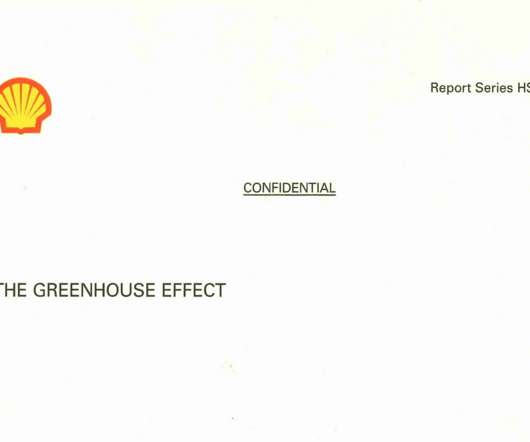Understanding the Anthropocene, Resilience Thinking, and the Future of Industry
Green Business Bureau
JANUARY 18, 2023
The planetary conditions that have enabled society to grow and become what it is today are changing, shifting to uncertain terrain with potentially catastrophic results. In 2016, the Anthropocene Working Group confirmed that the Anthropocene is different from the Holocene, and it began in the year 1950 with the Great Acceleration.















Let's personalize your content